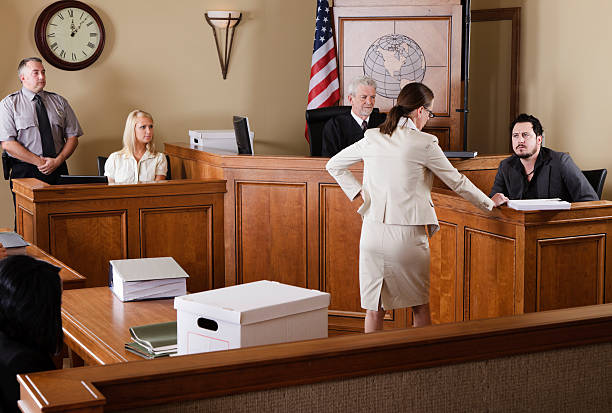4 Common Types Of Trust Litigation

Cases
If you are a beneficiary of a trust and believe that the trustee has breached their duties, or has acted in a way that is not in line with the terms of the trust agreement, you may have grounds for a claim of breach of fiduciary duty.
A trust litigation firm has extensive experience in litigating these matters. It also assists clients in resolving trust, estate and probate disputes without court action.
Disputes Between Trustees
If you are a trustee and you have a trust beneficiary who is upset about the administration of the trust, you may need to contact a trust litigation firm. A trust litigation firm can help you resolve your dispute in a timely and cost-effective manner.
The trust litigation firm that you hire will work with you to determine what relief is available from the court. This can include equitable relief and monetary damages.
You may also be entitled to recover property that has been wrongfully taken from your trust. This could be cash, stocks, mutual funds or real estate.
These cases can be complicated, and they can take time. Having an experienced trust litigation firm on your side can make the difference between a successful outcome and failure.
Disputes Between Beneficiaries
When a trust is set up, there are many people who may be involved in the process. This includes the person who created the trust, the trustee and the beneficiaries.
Whether you are a beneficiary or a trustee, there are times when things go wrong in the administration of a trust. This could be due to a trustee being incompetent, acting unfairly or not following the terms of the trust.
If you are a trust beneficiary, you have rights to your inheritance, including the right to challenge a trustee’s accounting. You can also seek restitution if property was wrongfully taken from the trust.
Typically, when a trust beneficiary has questions about the accountings of the trustee, they will hire a lawyer who can inspect those accountings and challenge them. This can be a challenging process for the beneficiary, but it is important to have a good attorney by their side.
Disputes Between Co-Trustees
The process of administering a trust can be stressful and complicated. Often, a trust document names multiple trustees who must all agree on the decisions to be made.
Disputes between co-trustees can lead to a long, costly litigation process, preventing beneficiaries from receiving the assets they have earned. This may be the result of a breach of duty by one or both co-trustees.
If a co-trustee has failed to properly manage the trust, the non-breaching co-trustee (or a beneficiary) can petition the probate court for removal of that co-trustee or seek damages from him or her for financial losses.
A trust litigation firm can help co-trustees resolve these disputes by coordinating the efforts of counsel. This includes avoiding duplication of effort, maintaining independence in the case, and zealously representing each co-trustee’s interests in the matter.
Disputes Between the Trustor and Trustee
Disputes between the trustor and trustee can occur for a number of reasons. Whether it’s due to a lack of communication, mismanagement of assets or the trustee not providing trust beneficiaries with the financial information they need to make sound decisions about their inheritance, you can rely on a trust litigation firm to help you resolve your dispute.
A trustee has a fiduciary duty to the trustor and their beneficiaries to make the trust property productive under the circumstances and in furtherance of the purposes for which the settlor created it. A trustee who does not do this may be in breach of their fiduciary duty and be liable to the beneficiaries for damages.
Similarly, a trustee may also be found to have misused or misappropriated trust assets for personal gain (e.g., the trustee sold the trust property without the beneficiaries’ approval). In such cases, the beneficiary can sue the trustee for misappropriation of assets and seek punitive damages.









